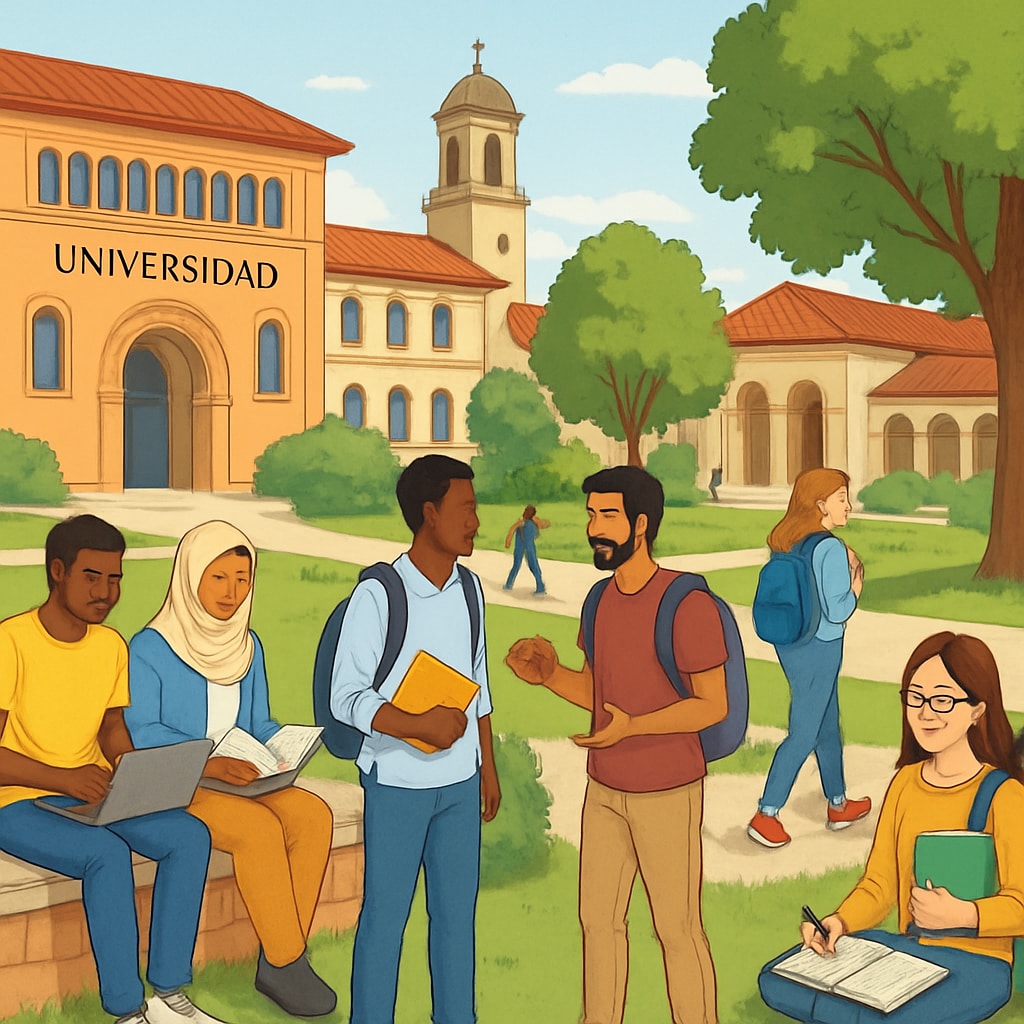Choosing to pursue a master’s degree abroad is a transformative decision, and Spain stands out as a top destination for international students. Combining renowned education programs, diverse culture, and pathways for immigration, studying in Spain offers a holistic experience. This article explores the feasibility and strategies for achieving academic and settlement success in Spain.
The Appeal of Studying in Spain
Spain is home to some of the world’s oldest and most prestigious universities, such as the University of Barcelona and the Complutense University of Madrid. Programs are designed to cater to international students, offering courses in English and Spanish. Affordable tuition fees, compared to other European or North American countries, make it an attractive option.
- World-class education with a focus on innovation and research.
- Affordable living costs in cities like Valencia and Granada.
- Opportunities for cultural immersion and language acquisition.

Pathways to Immigration Through Education
One of the significant advantages of studying in Spain is the potential for immigration. Upon completing a master’s program, students can apply for a “job search” visa, allowing them to stay in Spain for up to 12 months to find work. This visa serves as a stepping stone to long-term residency and, eventually, citizenship.
For example, Spain’s Long-Term Residency program allows individuals to apply after five years of continuous legal residency, including study time. In addition:
- Graduates in certain high-demand fields, such as technology and healthcare, have higher chances of securing employment.
- Learning Spanish significantly enhances the job search process and integration into the local workforce.

Overcoming Cultural and Academic Challenges
Adapting to a new educational and cultural environment is not without its hurdles. International students often face language barriers, cultural differences, and academic adjustments. However, these challenges can be mitigated with the right strategies:
- Language Learning: Enroll in Spanish language courses early to ease daily interactions and academic comprehension.
- Community Engagement: Join international student organizations for support and networking.
- Time Management: Familiarize yourself with Spain’s academic calendar and grading system to stay on top of coursework.
For more information on Spanish culture and education, the Education in Spain Wikipedia page is a useful resource.
Long-Term Benefits of Studying and Living in Spain
The benefits of studying in Spain extend far beyond graduation. By living in a multicultural society, students develop a global perspective, gain professional experience, and build lifelong relationships. Additionally, Spain offers a high quality of life with its Mediterranean climate, healthcare system, and vibrant communities.
In conclusion, pursuing a master’s degree in Spain is more than an academic endeavor; it is an opportunity to build a future. By leveraging the resources and opportunities available, international students can transition seamlessly into Spanish society and thrive both professionally and personally.
Readability guidance: This article uses concise paragraphs, lists for clarity, and strategically placed transition words like “however,” “in addition,” and “therefore.” Images and external links provide additional context and support the reader’s journey.


